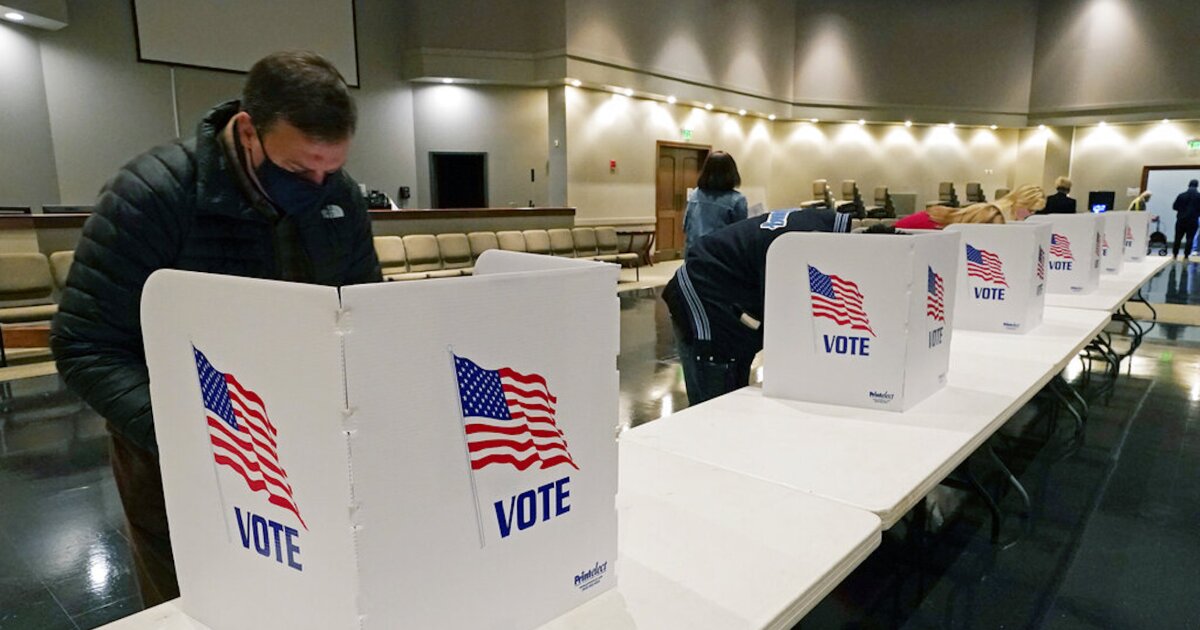

Democrats are gaining ground on Republicans in the polls after months of predictions of a “red wave” in the midterm elections.
The latest data, separately tracked by FiveThirtyEight and RealClearPolitics, have raised the question: Can President Joe Biden’s party defy expectations and deliver a middle-of-the-road outcome in November? The answer is not clear, as two months is an eternity in politics and much can change. The Democrats’ recent political gains are noteworthy, nonetheless, and make for a less clear outcome in the fall.
From July 21 to now, marking just one day less than a month, Biden’s average disapproval rating has fallen nearly 3 percentage points, from 57.2% to 54.3%, according to FiveThirtyEight. His average approval rating, meanwhile, has risen over 3 points, from 37.5% to 40.7%.
GOP’S SENATE HOPES ENDANGERED AS INCUMBENT REPUBLICANS LAG IN POLLS
Those remain dismal numbers, but they are a much-welcomed improvement to the president and his allies.
Take the crucial “generic ballot” question, which asks voters which party they would prefer to control Congress. Democrats have trailed Republicans on the generic ballot since November of last year. They’ve trailed by 1 or 2 points on average, however, not anywhere close to double-digit margins. Democrats also reversed their luck since the start of August on the generic ballot, slowly but steadily overtaking Republicans at the start of the month. As of Saturday, Democrats lead Republicans by just over 0.5%.
Republicans and Democrats are tied in the RealClearPolitics average, which is measured differently than FiveThirtyEight’s average. Similar to with FiveThirtyEight, Democrats last led in the RCP average in early November 2021. Democrats took the lead from Republicans by 1% in the RCP average on Tuesday, but the party has not been able to hold on to that lead.
The GOP is expected to retake the House, even by a smaller margin than originally predicted. The Senate, meanwhile, is a different story, something Senate Minority Leader Mitch McConnell (R-KY) recognized this week.
“I think there’s probably a greater likelihood the House flips than the Senate. Senate races are just different — they’re statewide, candidate quality has a lot to do with the outcome,” McConnell said Thursday at an event at the Northern Kentucky Chamber of Commerce. “Right now, we have a 50-50 Senate and a 50-50 country, but I think when all is said and done this fall, we’re likely to have an extremely close Senate, either our side up slightly or their side up slightly.”
“Candidate quality,” as McConnell put it, appears to be playing a role in key race after key race, with GOP candidates in must-win states such as Pennsylvania, Georgia, and Arizona trailing their Democratic competitors.
Though Biden was riding high at the start of his presidency, pushing through two major legislative achievements: a COVID-19 relief bill and the bipartisan infrastructure deal. Views on his job performance soured in the second half of 2021, however, when his handling of the Afghanistan military withdrawal and the COVID-19 surge were largely condemned.
CLICK HERE TO READ MORE FROM THE WASHINGTON EXAMINER
Biden’s political woes only worsened in 2022 as inflation began to rise to record rates, which both parties blamed on different causes. The president’s position in Washington politics continued to be bruised as Democrats began openly critiquing his job performance and discussing whether he should seek a second term.
As his presidency appeared to be at an all-time low, Biden and his party were given a series of political lifelines. First, the Supreme Court voted to overturn Roe v. Wade, the landmark case protecting abortion access, which shot the reproductive care debate toward the top of the list of voters’ concerns. Second, former President Donald Trump began his return to the political arena after essentially confirming he would launch a 2024 White House bid. Third, inflation, and specifically gas prices, began to subside.
Those events animated Democratic and independent voters who had lost their enthusiasm for Biden and the Democrats in recent months. Democrats also enjoyed a series of legislative victories in recent months, which also serves to spark confidence in voters that the government is functioning and Congress is getting things done. Those victories also give vulnerable Democrats in swing districts actionable things to return home and campaign on.






